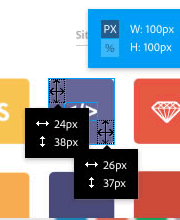Are you a freelancer? A contractor? A consultant? A gun for hire? A business owner? Self-employed? The way you describe your style of work may have a strong bearing on how prospects, clients, and colleagues perceive you. It can impact the types of work you get, and how easy you find it to charge your preferred rates. It can also influence your self-perception and confidence. If you haven’t given this issue much thought, you should. While positive and not-so-positive connotations are associated with every descriptor you could apply to your work style, thinking carefully about how you explain what you do can help you refocus on who you want to work with, how you’ll operate, and more.
A Matter of Fact
There’s no point trying to make your operation sound like something it’s not. This will only lead to disappointment — and potentially damage your self-esteem and reputation — if you can’t deliver on the description you’ve applied to your work style. If you’re a sole operator, describing yourself as an agency or consultancy may communicate the wrong messages to potential clients. They might be surprised, for example, if you can’t manage more than one project at a time. Similarly, if you contract work out to others in busy periods, consider describing your operation in a way that doesn’t imply you’re the only person in the business. If clients believe they’re getting your personal input exclusively on their every project, they may well be shocked to discover the truth. First up, think about the way you work, and narrow down your description to a selection of terms that accurately describe what you do.A Matter of Perception
Okay, so you know what you do. But who do you want to work with? It’s your clients’ and prospects’ perceptions that you want to shape. Some clients may be scared off by the term “contractor”, thinking you charge like a wounded bull. Others may feel that “freelancer” sounds like you operate part-time from your garage. The motivations of your clients may affect the way they perceive different descriptions. Think of a large organization that describes its work with third-party organizations in terms of “partnerships”, “recommendations”, and “relationships”. Its decision-makers may be more comfortable with the robust, ongoing arrangement implied by the terms “consultancy” or “advisor” than by words like “freelance”, which may suggest a stop-start arrangement that operates on a needs basis, rather than as an ongoing proposition. Conversely, if you’re targeting small businesses and sole operators, they may be more comfortable with the idea of working with someone who talks about themselves as a freelancer or small business owner. Describing your work as a business may help create an extra degree of rapport, an area of common ground, and a sense of mutual understanding. Take a look at the list of words you made a moment ago, and work out which ones you think appeal most to your target prospects. Perhaps you’ll consider running them past some trusted clients in the same position, field, or industry, to make sure you’re on the money.A Matter of Principle
Finally, think about which of the words you have on your list make you most comfortable. If you think “expert” sounds corny, for example, ditch it. There’s no point choosing a description — even if you think it’ll appeal to your audience — if you won’t be able to say it loud and proud next time you meet a new contact who asks what you do. Also think about where you’re heading with your small business or freelance operation. Your dreams for future world (or at least industry!) domination may steer your choices in a certain direction. You might be working to build long-term, ongoing client relationships from your current hit-and-run freelance jobs. In that case, calling yourself a “gun for hire” might be accurate right now, but it doesn’t reflect where you want to go, and — we hope — won’t be appropriate for much longer. Think about your current self-perception and your future goals in choosing a description that accurately reflects what you are able to offer clients now and in the medium-term future. These are the kinds of elements I think freelancers need to consider in working out how to describe what they do. What do you call yourself? And why? Image by stock.xchng user vxdigital.Frequently Asked Questions about Self-Description for Business Owners
How can a good self-description benefit my business?
A well-crafted self-description can significantly benefit your business. It helps to establish your personal brand, which is crucial in differentiating your business from competitors. It also builds trust and credibility with your customers, investors, and partners. By effectively communicating your skills, experiences, and values, you can attract the right audience and opportunities for your business.
What should I include in my business owner self-description?
Your self-description should include your professional background, skills, experiences, and personal values. Highlight your achievements as a business owner and the unique qualities that set you apart. Also, mention your leadership style, problem-solving abilities, and how you handle challenges. Remember to keep it concise, engaging, and authentic.
How can I make my self-description stand out?
To make your self-description stand out, focus on what makes you unique as a business owner. This could be your unconventional approach to business, your resilience in the face of challenges, or your commitment to certain values. Use compelling storytelling to engage your audience and make your description memorable.
How can I use my self-description in a job interview?
In a job interview, your self-description can help you showcase your suitability for the role. Highlight your relevant skills, experiences, and achievements. Also, demonstrate your personality traits that align with the company’s culture and values. Remember to tailor your self-description to the specific role and company.
How can I write a self-description for my resume?
When writing a self-description for your resume, focus on your professional experiences, skills, and achievements. Use action verbs and quantifiable results to demonstrate your impact as a business owner. Also, include keywords from the job description to increase your chances of passing through applicant tracking systems.
How can I improve my self-description over time?
Regularly updating your self-description is crucial to reflect your growth as a business owner. Incorporate new skills, experiences, and achievements. Also, seek feedback from trusted colleagues or mentors to identify areas for improvement. Remember to keep your self-description relevant to your current role and goals.
How can I convey my passion in my self-description?
To convey your passion, talk about why you started your business, the mission that drives you, and the impact you aim to make. Use emotive language and personal anecdotes to engage your audience. However, ensure your passion is balanced with professionalism.
How can I avoid sounding boastful in my self-description?
To avoid sounding boastful, focus on facts and specific examples when talking about your achievements. Use a humble tone and acknowledge the role of your team in your success. Also, show your willingness to learn and grow, which demonstrates humility.
How can I use my self-description on social media?
On social media, your self-description should be concise, engaging, and tailored to your audience. Use a conversational tone and include relevant hashtags. Also, regularly update your self-description to reflect your current role, achievements, and goals.
How can I use my self-description in networking events?
At networking events, your self-description serves as your elevator pitch. Keep it brief, compelling, and focused on your unique value proposition. Also, tailor your self-description to the event and the people you’re interacting with. Remember to end with a question or a call-to-action to engage your listener.
Georgina has more than fifteen years' experience writing and editing for web, print and voice. With a background in marketing and a passion for words, the time Georgina spent with companies like Sausage Software and sitepoint.com cemented her lasting interest in the media, persuasion, and communications culture.





